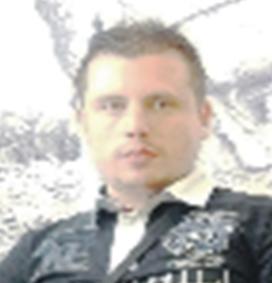The Rwanda Genocide: a forgotten chapter of recent history. Dialogue between Tudor Petcu and Guy Orgambide
 ROMÂNIA ÎN ANUL MARII UNIRI – C[entum]
ROMÂNIA ÎN ANUL MARII UNIRI – C[entum]
Revista Luceafărul (Bt), Anul – X
Autor: Dr. Tudor PETCU
Interviu
Publicat: 23 Iun. 2018
Editor: Ion ISTRATE
The Rwanda Genocide: a forgotten chapter of recent history. Dialogue between Tudor Petcu and Guy Orgambide
1.) At the begining of our dialogue it would be necessary to find out how should be understood the Rwanda Genocide. Which is the meaning of this Genocide? I am asking you that because many Europeans, and especially Eastern Europeans, as far as I know, have no concrete idea about what has really meant the Rwanda Genocide which is a very important chapter of the recent history.
In 1994, when the massacres were taking place, the world powers let them happen. There was little activism among their respective peoples in support of an intervention to stop the genocide. In my opinion, the main reason for that inertia at government level, as well as people level, was the perception that the massacres were the result of yet another tribal war in Africa.
The reason why you feel that understanding of the Rwanda genocide is minimal in Europe is that for many people today, 25 years later, the perception of the event is still the same: a tribal war. There is little education happening at school level or in the “intelligent” media to explain why this was truly a planned genocide and not a tribal war. Every year, around April (date of the beginning of the genocide), the media may dedicate a few shows to the remembrance of the genocide but there is not a strong network of resources to perpetuate the legacy of the Rwanda genocide, as there is for instance for the Shoah.
In addition, this is a genocide that happened in Africa, where many mass massacres have occurred in various countries throughout the past century, before and after the Rwanda genocide. This profusion of tribal wars, power wars, and religious wars reinforce the perception that such events are common on the African continent and it makes it harder for the lay person to realize the different nature of the genocide that took place in Rwanda.
2.) Can you tell me please how often have the historians spoken about the Rwanda Genocide, especially in the US?
When I was doing my research, almost all of the information of high quality that I found was edited by journalists (print and TV), not historians. The voices that are most commonly heard in the public domain to discuss the Rwanda genocide are those of journalists, public officials present in Rwanda during the massacres (especially Lieutenant-General Roméo Dallaire), and members of survivor organizations. I am sure that there are some historians that have studied these events and even some that specialize in that aspect of history, but their role in perpetuating the legacy of the genocide is minimal. To this day, the Rwanda genocide does not appear to be treated as a major historical event in human history, once again maybe because it occurred in Africa and in a country of minor geopolitical impact.
3.) Every historical tragedy represented of course a some kind of unicity, as for example the Holocaust which was called by the Jewish historians „Shoah”. Which is in your opinion the unicity of the Rwanda Genocide as a catastrophe in the recent history of the world?
The most distinctive feature of the Rwanda genocide is the fact that is was carried out by neighbors against neighbors, relatives against relatives, even spouses against spouses. In most other mass massacres in history, a group of people attacks another, clearly distinct, group of people. The crimes in Rwanda were committed within the same group of people. Yes, there may have been socio-economical differences between Hutus and Tutsis but they had been coexisting for a very long time on the same land and in relative peace. Hutu and Tutsi children went to the same schools, their parents went to the same churches, there were many marriages across the two groups, and they lived next door to each other all across the land. They were turned against each other by a very vicious, very carefully designed campaign of psychological manipulation.
Another aspect of the Rwanda genocide that is often overlooked is that it took place in one of the countries with one of the highest population densities in the world. From an ethnographic perspective, this is a very interesting factor. When population density rises, resources slowly become scarcer and tensions and aggressivity rise. This is a well-known ecological phenomenon that may have played a significant role in the receptivity of the population to the racist campaign engineered by the powers in place in Rwanda in 1994.
4.) I know there is in the US an impressive literature dedicated to the Rwanda Genocide. So, there is an impressive research in the study of the Rwanda Genocide but could you say that in our days because of this research the Rwanda Genocide is well known enough? If no, what else should be done?
The execution and aftermath of the genocide are indeed quite extensively documented by now. What is not well documented is the preparation of the genocide that took place in the shadows before the official start of the massacres on April 6, 1994, the day when the plane of the Rwandan president was shot down. The “efficiency” of the Rwanda genocide (1 million victims in 3 months with the direct participation in the massacres of a huge portion of the population) in another aspect of the unicity of this event. Such speed of execution and efficiency were made possible by a very extensive planning upstream of the trigger event of May 6. This planning involved in particular:
– the training of Hutu militias by the national army as well as by foreign troops (especially French),
– the procurement of hundreds of thousands of machetes from China,
– the daily conditioning of the population through radio and print media with a message crafted to be increasingly virulent against the Tutsi minority, this to prepare their killers to go into action on command
– the preparation of lists, both at national and local levels of Tutsi members and moderate Hutus to be exterminated when the time would come
Who designed in detail such large scale murder strategies? How could such manoeuvers take place for months, if not years, without any counter-reaction in Rwanda or within the international community? Once we obtain better clarity on these questions, then maybe we will start to really understand the genocide and not just document it. I hope that someone will one day invest the time and energy necessary to analyze the technical aspects preparation of the genocide and the strategy behind it.
5.) Which are the main documentaries about the Rwanda Genocide that could help us to understand its unicity?
I would encourage you to explore the materials listed on the multimedia section of my site. It contains some valuable documentaries.
In my personal case, the documentary that provided the greatest enlightenment about all levels of the Rwanda genocide is a French audio series entitled “Rwanda: Un Genocide Oublie” (“Rwanda: A Forgotten Genocide”). This series was broadcast on French national radio France Culture in 2003. It was created byLaure de Vulpian, a journalist who is an expert in that genocide and has published two books about it. This series looks at all aspects of the genocide, before, during, and after, with excellent documentation and expert opinions. All along the series, it also follows a famed trial in Belgium of 4 Rwandan citizens who were involved in the killings, two officials and two nuns. It is a fascinating account of genocide but it lasts over 20 hours and all the language is French (but I saw in your CV that you spoke French). It is no longer available online but I have a full copy that I will be glad to share with you if you are interested. Just let me know.
6.) I would be very interested in founding out more about the survivors of the Rwanda Genocide who had the opportunity to speak about their experiences. So please tell me some words about the most important survivors who have spoken about their experiences. I think it’s essential to take into account the personal confessions about the Rwanda Genocide because I am certain that they were and are extremely helpful to those who are trying to discover and understand in a concrete way the unicity of the Rwanda Genocide.
I have not communicated with survivors but two names that often comes back in official testimonies and lectures are those of Yolande Mukagasana and Immaculée Ilibagiza.
- The History of Armenian Philosophy. Dialogue between Tudor Petcu and Arshak Balayan
- 8 MAI – ZIUA MONDIALĂ A CRUCII ROȘII ȘI SEMILUNII ROȘII – 50 ani, ”Our Principles in Action”
- Îmi place, de Ioan Vasiu
- The metapainting of imagery collections / „METACOLLECTIONS” by Lucian Brumă
- Exploiting Audacity for Language Learning
Drept de autor © 2009-2026 Revista Luceafărul. Toate drepturile rezervate.
Revista Luceafărul foloseşte cu mândrie platforma de publicare Wordpress.
Server virtual Romania
